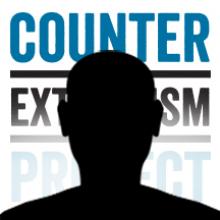
Abu Khalid al-Madani
Leader of ASL
Ansar al-Sharia in Libya (ASL) was a violent Salafist group that was active in Libya from 2012 to 2017. In 2012, ASL’s predecessor groups attacked the U.S. consulate in Benghazi, killing four Americans, including U.S. Ambassador to Libya Christopher Stevens.
October 2018: Reports of clashes between the Libyan National Army and the Derna Mujahideen Shura Council in Derna city.Amira El-Fekki, “Egypt’s most wanted militant’s arrest recounts fighting extremist groups in Derna,” Daily News Egypt, October 14, 2018, https://dailynewsegypt.com/2018/10/14/egypts-most-wanted-militants-arrest-recounts-fighting-extremist-groups-in-derna/.
Ansar al-Sharia in Libya (ASL) was a violent Salafist group that was active in Libya from 2012 to 2017. The group sought to transform Libya into an Islamic state governed in accordance with sharia (Islamic law). At its height, ASL operated branches in Benghazi, Derna, Sirte, Ajdabiya, and Nawfalia.Henrik Gråtrud and Vidar Benjamin Skretting, “Ansar al-Sharia in Libya: An Enduring Threat,” Perspectives on Terrorism 11, no.1 (2017): 40-53, http://www.jstor.org/stable/26297736; Andrew Engel, “Libya’s Civil War: Rebuilding the Country from the Ground Up,” The Washington Institute for Near East Policy, no.25 (April 2015): 1-17, https://www.washingtoninstitute.org/uploads/Documents/pubs/ResearchNote25_Engel4.pdf; Aaron Y. Zelin, “Libya’s Jihadists Beyond Benghazi,” Foreign Policy, August 12, 2013, http://foreignpolicy.com/2013/08/12/libyas-jihadists-beyond-benghazi/.
ASL emerged from two smaller groups: the Ansar al-Sharia Brigade in Benghazi (ASB) and Ansar al-Sharia in Derna (ASD). ASB and ASD began operating under the name of “Ansar al-Sharia in Libya” in an effort to rehabilitate their public image after facing domestic and international condemnation for their alleged involvement in the September 2012 attack on the U.S. consulate in Benghazi.Henrik Gråtrud and Vidar Benjamin Skretting, “Ansar al-Sharia in Libya: An Enduring Threat,” Perspectives on Terrorism 11, no.1 (2017): 40-53, http://www.jstor.org/stable/26297736. ASL denied that it was connected to the consulate attack and, in an effort to rebrand, increased its focus on dawa (Islamic missionary work). Through the group’s dawa campaign—which included fixing schools and roads, opening medical clinics, and providing food for the hungry—ASL was able to win back the trust of many Libyans and to exert control in regions that had been long-neglected under former dictator Muammar Gaddafi.Leila Fadel, “Libyan Group Denies Role In U.S. Consulate Attack,” NPR, September 20, 2012, http://www.npr.org/2012/09/20/161459963/libyan-group-denies-role-in-u-s-consulate-attack; Aaron Y. Zelin, “Libya’s Jihadists Beyond Benghazi,” Foreign Policy, August 12, 2013, http://foreignpolicy.com/2013/08/12/libyas-jihadists-beyond-benghazi/; Rhiannon Smith and Jason Pack, “Al-Qaida’s Strategy in Libya: Keep it Local, Stupid,” Perspectives on Terrorism 11, no.6 (2017), http://www.terrorismanalysts.com/pt/index.php/pot/article/view/667/html.
ASL’s connection to al-Qaeda central and to al-Qaeda in the Islamic Maghreb has been recognized by local and international authorities. According to the United Nations, ASL operated training camps in Libya “mainly for the benefit of Al-Qaida associated groups in Syria and in Iraq.”“Narrative Summaries of Reasons for Listing: Ansar Al Charia Derna,” United Nations Security Council, February 3, 2016, https://www.un.org/sc/suborg/en/sanctions/1267/aq_sanctions_list/summaries/entity/ansar-al-charia-derna. Although ASL denied any official connection, the group’s former emir Mohamed al-Zahawi openly praised al-Qaeda in a 2012 BBC interview.Leila Fadel, “Libyan Group Denies Role In U.S. Consulate Attack,” NPR, September 20, 2012, http://www.npr.org/2012/09/20/161459963/libyan-group-denies-role-in-u-s-consulate-attack; Ahmed Maher, “Meeting Mohammad Ali al-Zahawi of Libyan Ansar al-Sharia,” BBC News, September 18, 2012, https://www.bbc.com/news/world-africa-19638582.
On May 16, 2014, a retired Libyan army general named Khalifa Haftar launched a massive assault—codenamed “Operation Dignity”—on Islamist groups in Benghazi.Jomana Karadsheh, “Islamist militants strike back against Benghazi renegades; 15 killed,” CNN, June 2, 2014, http://www.cnn.com/2014/06/02/world/africa/libya-violence/. Although ASL initially maintained control of Benghazi, civilian uprisings within the city and offensives launched by Haftar gradually eroded ASL’s control. Further, ASL suffered from the defection of a number of prominent ASL members to ISIS, including ASD founder Abu Sufyan Bin Qumu and ASL’s senior sharia official Abu Abdullah al-Libi.Aya Elbrqawi, “Libya: Derna Cries for Help,” AllAfrica, December 1, 2014, http://allafrica.com/stories/201412020345.html; Thomas Joscelyn, “Ansar Al Sharia Libya Relaunches Social Media Sites,” Long War Journal, April 9, 2015, http://www.longwarjournal.org/archives/2015/04/ansar-al-sharia-libya-relaunches-social-media-sites.php. Lydia Sizer at the Middle East Institute noted that the number of ASL members defecting to ISIS appeared to increase after the death of Mohamed al-Zahawi in January 2015.Lydia Sizer, “Libya’s Terrorism Challenge: Assessing the Salafi-Jihadi Threat,” Middle East Institute, https://www.mei.edu/sites/default/files/publications/PP1_Sizer_LibyaCT_web_0.pdf; Nadia Radwan, “Libya: Ansar Al-Sharia in Libya Leader Dead,” AllAfrica, January 26, 2015, http://allafrica.com/stories/201501270208.html.
Haftar’s Benghazi offensive ultimately led to the dissolution of ASL on May 28, 2017. ASL announced that, after being pushed back to its last two neighborhoods in the city, the group had lost too many fighters and leaders to continue functioning.“Libya's Ansar al-Sharia announces dissolution,” Al Jazeera, May 28, 2017, http://www.aljazeera.com/news/2017/05/libya-ansar-al-sharia-announces-dissolution-170528045219409.html.
Sharia
ASL’s primary objective was to institute sharia in Libya. As the group’s former leader, Mohamed al-Zahawi, said, “Our brave youths will continue their struggle until they impose [sharia].”Ahmed Maher, “Meeting Mohammad Ali Al-Zahawi of Libyan Ansar Al-Sharia,” BBC News, September 18, 2012, http://www.bbc.com/news/world-africa-19638582. Like Ansar al-Sharia in Tunisia, ASL viewed democracy as the antithesis to Islam. The group believed democracy subverted sharia by giving man the power to make law—a power ASL considered to be reserved for God alone. This belief separated ASL from the Muslim Brotherhood-affiliated Justice and Construction Party, and other Islamist groups that sought to introduce Islamic principles in Libya through the democratic process.Aaron Zelin, “The Rise and Decline of Ansar al-Sharia in Libya," Hudson Institute, April 6, 2015, https://www.hudson.org/research/11197-the-rise-and-decline-of-ansar-al-sharia-in-libya.
Dawa and Jihad
ASL viewed garnering public support through dawa as a necessary precursor to the establishment of an Islamic state in Libya.Aaron Zelin, “The Rise and Decline of Ansar al-Sharia in Libya," Hudson Institute, April 6, 2015, https://www.hudson.org/research/11197-the-rise-and-decline-of-ansar-al-sharia-in-libya. In the absence of a strong local government, ASL’s dawa activities became integral to daily life in Benghazi.Aaron Y. Zelin, “Libya’s Jihadists Beyond Benghazi,” Foreign Policy, August 12, 2013, http://foreignpolicy.com/2013/08/12/libyas-jihadists-beyond-benghazi/. The group usurped the government’s role in providing a number of key social services, including cleaning, maintaining, and patrolling streets, collecting garbage, and establishing medical clinics and hospitals.Aaron Y. Zelin, “Libya’s Jihadists Beyond Benghazi,” Foreign Policy, August 12, 2013, http://foreignpolicy.com/2013/08/12/libyas-jihadists-beyond-benghazi/. Many of ASL’s dawa activities were designed to promote Islam. ASL ran Quranic competitions, provided food to the poor during the Muslim holidays of Eid and Ramadan, confiscated drugs and alcohol, and opened religious schools and centers. In media campaigns, ASL highlighted its outreach and charity efforts, portraying themselves as defenders and promoters of Islam and sharia.Faisal Irshaid, "Profile: Libya’s Ansar Al-Sharia," BBC News, June 13, 2014, http://www.bbc.com/news/world-africa-27732589.
Aaron Y. Zelin, a fellow at the Washington Institute for Near East Policy, wrote that ASL likely emerged from the ideology of Abu Muhammad al-Maqdisi, who “has attempted to steer the jihadi community to a more ‘pure’ jihad” in order to offset the brutal image of jihad popularized by deceased al-Qaeda in Iraq leader Abu Musab al-Zarqawi.Aaron Y. Zelin, “Maqdisi’s Disciples in Libya and Tunisia,” Foreign Policy, November 14, 2012, http://foreignpolicy.com/2012/11/14/maqdisis-disciples-in-libya-and-tunisia/. According to Zelin, al-Maqdisi tried to draw a distinction between the idea of qital al-nikayya (fighting to hurt or damage the enemy) and qital al-tamkin (fighting to consolidate one’s power). Zelin writes that “the former provides only short-term tactical victories… whereas the latter provides a framework for consolidating an Islamic state.” According to Zelin, ASL’s practices appeared to be in accord with qital al-tamkin.Aaron Y. Zelin, “Maqdisi’s Disciples in Libya and Tunisia,” Foreign Policy, November 14, 2012, http://foreignpolicy.com/2012/11/14/maqdisis-disciples-in-libya-and-tunisia/.
Hisba
ASL routinely used violence as a means to enforce sharia in Libya under the banner of hisba, the duty to command moral acts and to prohibit immoral ones.Daveed Gartenstein-Ross, “Ansar Al-Sharia Tunisia’s Long Game: Dawa, Hisba, and Jihad,” International Centre for Counter-Terrorism–The Hague, May 2013, http://www.icct.nl/download/file/Gartenstein-Ross-Ansar-al-Sharia-Tunisia%27s-Long-Game-May-2013.pdf. According to al-Zahawi, it was “a religious duty” to destroy and remove Sufi shrines that the group considered idolatry. He went on to explain: “people worship the deceased and this is prohibited. It is not me who says so but rather our religion.” ASL’s hisba activities also included confiscating anatomy books from the European School in Benghazi after deeming that they were “pornographic” in nature.Aaron Y. Zelin, “The Terrorist Threat in North Africa,” Washington Institute for Near East Policy, July 10, 2013, https://www.washingtoninstitute.org/uploads/Documents/testimony/ZelinTestimony20130710-v2.pdf. Similarly, in February 2015, gunmen from an “al-Qaeda inspired militia” seized radio and television stations in Sirte after ASL “warned the station to stop broadcasting music.”“Islamic Militants Seize Radio, TV Stations in Central Libya,” New York Times, February 14, 2015, http://www.nytimes.com/aponline/2015/02/14/world/middleeast/ap-ml-libya.html.
ASL emerged from two smaller groups formed in the aftermath of the 2011 Libyan Revolution: the Ansar al-Sharia Brigade in Benghazi (ASB), founded by Mohamed al-Zahawi, and Ansar al-Sharia in Derna (ASD), established by Abu Sufian Bin Qumu.Henrik Gråtrud and Vidar Benjamin Skretting, “Ansar al-Sharia in Libya: An Enduring Threat,” Perspectives on Terrorism 11, no.1 (2017): 40-53, http://www.jstor.org/stable/26297736. ASB and ASD initially operated independently, exerting control in Benghazi and Derna, respectively.Rhiannon Smith and Jason Pack, “Al-Qaida’s Strategy in Libya: Keep it Local, Stupid,” Perspectives on Terrorism 11, no.6 (2017), http://www.terrorismanalysts.com/pt/index.php/pot/article/view/667/html; Mary Fitzgerald, “It Wasn’t Us,” Foreign Policy, September 18, 2012, https://foreignpolicy.com/2012/09/18/it-wasnt-us/. The groups were reportedly drawn together after both faced domestic and international condemnation for their alleged involvement in the September 2012 attack on the U.S. consulate in Benghazi that killed four Americans, including U.S. Ambassador to Libya Christopher Stevens.“Mapping Militant Organizations: Ansar al-Sharia (Libya),” Stanford University, August 24, 2016, http://web.stanford.edu/group/mappingmilitants/cgi-bin/groups/view/545#note20; David Smith, “Alleged mastermind of Benghazi attack found not guilty of murder,” Guardian, November 28, 2017, https://www.theguardian.com/us-news/2017/nov/28/benghazi-attack-not-guilty-murder-ahmed-abu-khattala. After the attack, al-Zahawi took steps to rebrand ASB. The group ramped up its dawa campaign and began to operate under the name of Ansar al-Sharia in Libya to convey its support for Islamic unity across the nation.Henrik Gråtrud and Vidar Benjamin Skretting, “Ansar al-Sharia in Libya: An Enduring Threat,” Perspectives on Terrorism 11, no.1 (2017): 40-53, http://www.jstor.org/stable/26297736; Aaron Y. Zelin, “Libya’s Jihadists Beyond Benghazi,” Foreign Policy, August 12, 2013, http://foreignpolicy.com/2013/08/12/libyas-jihadists-beyond-benghazi/; Naji Abou-Khalil and Laurence Hargreaves, “Perceptions of Security in Libya: Institutional and Revolutionary Actors,” United States Institute of Peace, 2015, https://www.usip.org/sites/default/files/PW108-Perceptions-of-Security-in-Libya.pdf. Media reports claimed that ASD had disbanded after the attack, however, Bin Qumu and other ASD members eventually re-surfaced in Derna as a semi-autonomous branch of ASL.Henrik Gråtrud and Vidar Benjamin Skretting, “Ansar al-Sharia in Libya: An Enduring Threat,” Perspectives on Terrorism 11, no.1 (2017): 40-53, http://www.jstor.org/stable/26297736. ASL eventually established additional branches in Sirte, Ajdabiya, and Nawfalia and reportedly had a presence in al-Bayda, Sabratha, and Tripoli.Andrew Engel, “Libya’s Civil War: Rebuilding the Country from the Ground Up,” The Washington Institute for Near East Policy, no.25 (April 2015): 1-17, https://www.washingtoninstitute.org/uploads/Documents/pubs/ResearchNote25_Engel4.pdf; Aaron Y. Zelin, “Libya’s Jihadists Beyond Benghazi,” Foreign Policy, August 12, 2013, http://foreignpolicy.com/2013/08/12/libyas-jihadists-beyond-benghazi/; Henrik Gråtrud and Vidar Benjamin Skretting, “Ansar al-Sharia in Libya: An Enduring Threat,” Perspectives on Terrorism 11, no.1 (2017): 40-53, http://www.jstor.org/stable/26297736.
Mohamed al-Zahawi served as ASL’s emir until January 2015, when he died from wounds sustained in an October 2014 airstrike.“Libya’s Ansar confirms chief’s death,” BBC News, January 25, 2015, https://www.bbc.com/news/world-africa-30971915. Six months later, on June 18, 2015, the group named Abu Khalid al-Madani as its new leader.Thomas Joscelyn, “Ansar al Sharia Libya fights on under new leader,” Long War Journal, June 30, 2015, http://www.longwarjournal.org/archives/2015/06/ansar-al-sharia-libya-fights-on-under-new-leader.php. Little is known about ASL’s organizational structure but the group reportedly had two main divisions: one dedicated to military affairs and one to philanthropy. ASL also operated a media apparatus called al-Raya Media Productions.Naji Abou-Khalil and Laurence Hargreaves, “Perceptions of Security in Libya: Institutional and Revolutionary Actors,” United States Institute of Peace, 2015, https://www.usip.org/sites/default/files/PW108-Perceptions-of-Security-in-Libya.pdf; Library of Congress Federal Research Division, “Al-Qaeda in Libya: A Profile,” Federation of American Scientists, August 2012, http://www.fas.org/irp/world/para/aq-libya-loc.pdf.
ASL joined forces with other Islamist factions after General Khalifa Haftar’s Libyan National Army launched “Operation Dignity” in May 2014.Jomana Karadsheh, “Islamist militants strike back against Benghazi renegades; 15 killed,” CNN, June 2, 2014, http://www.cnn.com/2014/06/02/world/africa/libya-violence/; Andrew McGregor, “Libya’s Ansar al-Shari’a Declares the Islamic Emirate of Benghazi,” Jamestown Foundation, August 8, 2014, https://jamestown.org/program/libyas-ansar-al-sharia-declares-the-islamic-emirate-of-benghazi/#.U-gKk_k7uG7. ASL, the 17 February Martyrs Brigade, and other Islamist militias in Benghazi formed a coalition called the Benghazi Revolutionaries’ Shura Council (BRSC) on June 20, 2014.Cameron Glenn, “Libya’s Islamists: Who They Are – And What They Want,” Wilson Center, August 8, 2017, https://www.wilsoncenter.org/article/libyas-islamists-who-they-are-and-what-they-want; Agence France-Presse, “Splits Emerge between Libyan Islamists and Jihadists,” Yahoo News, August 18, 2014, http://news.yahoo.com/splits-emerge-between-libyan-islamists-jihadists-183000425.html. In December 2014, ASL’s branch in Derna and other Islamist militias in the region founded the Derna Mujahideen Shura Council (DMSC), which was later renamed the Derna Protection Force (DPF).“Libya Shura Council,” GlobalSecurity.org., accessed November 5, 2018, https://www.globalsecurity.org/military/world/para/libya-shura-council.htm; Kevin Truitte, “The Derna Mujahideen Shura Council: A Revolutionary Islamist Coalition in Libya,” Perspectives on Terrorism 12, no.5 (2018): 6, https://www.universiteitleiden.nl/binaries/content/assets/customsites/perspectives-on-terrorism/2018/issue-5/truitte-2.pdf. In the summer of 2016, ASL and the BRSC aligned with the umbrella organization Benghazi Defense Brigades (BDB) in the fight against Haftar’s forces.Thomas Joscelyn. “Libya’s Terrorist Descent: Causes and Solutions,” Long War Journal, September 27, 2017, https://www.longwarjournal.org/archives/2016/09/libyas-terrorist-descent-causes-and-solutions.php. After enduring three years of debilitating losses of fighters and leaders, ASL officially disbanded on May 28, 2017.“Libya's Ansar al-Sharia announces dissolution,” Al Jazeera, May 28, 2017, http://www.aljazeera.com/news/2017/05/libya-ansar-al-sharia-announces-dissolution-170528045219409.html. A month later, on June 23, 2017, the BDB announced its plans to disband.“Benghazi Defense Brigades say they are ready to disband group,” Libya Observer, June 23, 2017, https://www.libyaobserver.ly/news/benghazi-defense-brigades-say-they-are-ready-disband-group. In Derna it appears that the DPF continues to fight against the LNA, with reports of clashes in the region in October 2018.“Other Jihadi Actors,” Eyes on ISIS in Libya, May 1, 2018, http://eyeonisisinlibya.com/other-jihadi-actors/25-apr-1-may-ansar-al-sharia-members-allegedly-involved-in-clashes-near-derna/; Amira El-Fekki, “Egypt’s most wanted militant’s arrest recounts fighting extremist groups in Derna,” Daily News Egypt, October 14, 2018, https://dailynewsegypt.com/2018/10/14/egypts-most-wanted-militants-arrest-recounts-fighting-extremist-groups-in-derna/.
Ansar al-Sharia militiamen reportedly received funding from the Libyan government to help clamp down on drug dealers and crime in Benghazi. Sources in Libya’s Parliament allegedly revealed that these payments were made via the 17 February Martyrs Brigade and other militias in the region. According to a February 2013 Daily Beast report, the former chief of staff for Libya’s ground forces, Yousef Mangoush, had “divert[ed] operational funds from the fledgling armed forces to the militia.”Jamie Dettmer, “Libyan Government Turns to Ansar Al-Sharia Militia for Crime-Fighting Help,” Daily Beast, February 26, 2013, http://www.thedailybeast.com/articles/2013/02/25/libyan-government-turns-to-ansar-al-sharia-militia-for-crime-fighting-help.html.
ASL also reportedly received donations from Libyan expatriates for the social services that it provided.Faisal Irshaid, “Profile: Libya’s Ansar Al-Sharia,” BBC News, June 13, 2014, http://www.bbc.com/news/world-africa-27732589.
Recruitment
ASL operated a highly professional and organized media wing called al-Raya Media Productions Foundation and, like many other jihadist organizations, maintained an active social media presence.Library of Congress Federal Research Division, “Al-Qaeda in Libya: A Profile,” Federation of American Scientists, August 2012, http://www.fas.org/irp/world/para/aq-libya-loc.pdf. ASL utilized a number of platforms including Facebook, Twitter, and Google Plus to attract new recruits.Thomas Joscelyn, “Social Media Jihad: Ansar al Sharia Libya’s new Twitter feed,” Long War Journal, October 30th, 2013, https://www.longwarjournal.org/archives/2013/10/social_media_jihad_ansar_al_sh_1.php; Nadia Radwan, “Libya: Ansar Al-Sharia Intensifies Recruitment,” AllAfrica, November 15, 2013, http://allafrica.com/stories/201311180744.html. On Twitter the group operated a series of accounts to create a “‘correspondents’ or ‘reporters’ network” to disseminate ASL propaganda, similar to that used by the Nusra Front (Jabhat Fateh al-Sham). ASL propaganda on Twitter included photos of ASL’s civil and social services in Benghazi and information from the fight against Libyan forces. The group also used its Twitter accounts to praise its late leader Mohamed al-Zahawi’s commitment to jihad and to circulate audio clips from 96.9 FM, a radio station that the group broadcasted in Benghazi.Thomas Joscelyn, “Ansar al Sharia Libya relaunches social media sites,” Long War Journal, April 9, 2015, http://www.longwarjournal.org/archives/2015/04/ansar-al-sharia-libya-relaunches-social-media-site. Twitter banned ASL’s accounts, but the group quickly replaced them. In a new strategy, ASL launched several new feeds at once in late March 2015.Thomas Joscelyn, “Ansar al Sharia Libya relaunches social media sites,” Long War Journal, April 9, 2015, http://www.longwarjournal.org/archives/2015/04/ansar-al-sharia-libya-relaunches-social-media-site.
Training
According to the United Nations, Ansar al-Sharia in Derna maintained “several terrorist training camps” in the region “mainly for the benefit of Al-Qaida associated groups in Syria and in Iraq.”“Narrative Summaries of Reasons for Listing: Ansar Al Charia Derna,” United Nations Security Council, February 3, 2016, https://www.un.org/sc/suborg/en/sanctions/1267/aq_sanctions_list/summaries/entity/ansar-al-charia-derna. On April 6, 2016, Ansar al-Sharia in Derna released a video showing the graduation of a small group of fighters from its Martyr Milud Sadaqa training camp, where the men trained with small arms and light machine guns and learned basic infantry movements.“New video message from Anṣār al-Sharī’ah in Libya: “Graduation of a New Class From the Training Center of the Martyr Mīlūd Ṣadāqah”,” Jihadology, April 6, 2016, http://jihadology.net/2016/04/06/new-video-message-from-an%E1%B9%A3ar-al-shariah-in-libya-graduation-of-a-new-class-from-the-training-center-of-the-martyr-milud-%E1%B9%A3adaqah/. There is also evidence to suggest that ASL operated training camps in Benghazi.Aaron Y. Zelin, “New Evidence on Ansar Al-Sharia in Libya Training Camps,” Al-Wasat, August 8, 2013, https://thewasat.wordpress.com/2013/08/08/new-evidence-on-ansar-al-sharia-in-libya-training-camps/. Half of the 24 militants involved in the January 2013 In Amenas, Algeria, gas complex attack had reportedly trained in ASL camps in Benghazi.“UN Security Council adds Libya Islamists to terror list,” The Telegraph, November 19, 2014, https://www.telegraph.co.uk/news/worldnews/africaandindianocean/libya/11242369/UN-Security-Council-adds-Libya-Islamists-to-terror-list.html.

Leader of ASL
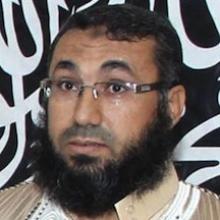
Former leader of ASL (deceased)
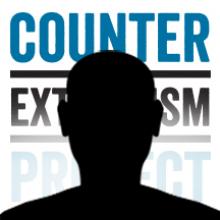
Senior sharia jurist
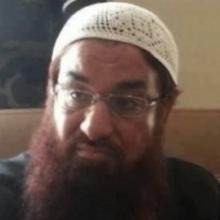
Leader of the Ansar al-Sharia branch in Derna (defected to ISIS)
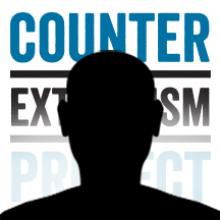
Head of ASL religious committee (allegedly deceased)
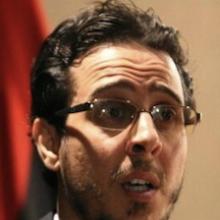
Spokesman

Military commander in the Benghazi Revolutionaries' Shura Council (decased)
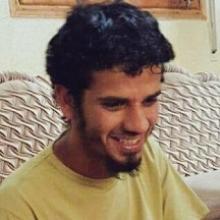
Military commander of ASL (deceased)
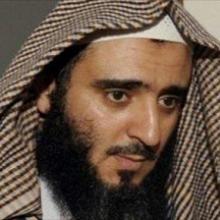
Former senior sharia official (defected to ISIS)
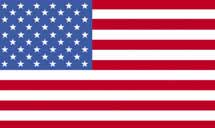
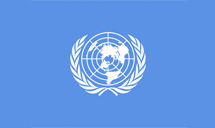
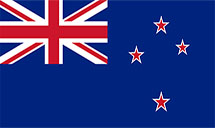
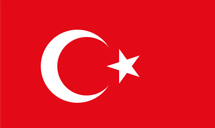
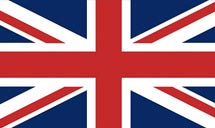
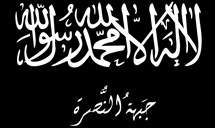
The U.N. acknowledged an association between Ansar al Sharia in Benghazi and al-Mourabitoun in a November 19, 2014 press release.“Security Council Al-Qaida Sanctions Committee Adds Two Entities to Its Sanctions List,” United Nations Security Council, November 19, 2014, https://www.un.org/press/en/2014/sc11659.doc.htm. French intelligence alleged that Mokhtar Belmokhtar, founder and leader of al-Mourabitoun, met with ASL fighters in Ubari.Aaron Y. Zelin, “Libya's Jihadists Beyond Benghazi,” Washington Institute for Near East Policy, August 12, 2013, http://www.washingtoninstitute.org/policy-analysis/view/libyas-jihadists-beyond-benghazi. Half of the 24 operatives involved in the January 2013 In Amenas, Algeria, gas complex attack had reportedly received training at ASL camps in Benghazi.Agence France-Presse, “UN Security Council Adds Libya's Ansar Al-Sharia to Terror List,” I24 News, November 20, 2014, http://www.i24news.tv/en/news/international/africa/51583-141120-un-security-council-adds-libya-s-ansar-al-sharia-to-terror-list.

In November 2014, the United Nations sanctioned ASL as an entity associated with al-Qaeda.Thomas Joscelyn, “UN Recognizes Ties between Ansar Al Sharia in Libya, Al Qaeda,” Long War Journal, November 19, 2014, http://www.longwarjournal.org/archives/2014/11/un_designates_ansar.php. Shortly after, former U.K. Foreign Secretary Philip Hammond expressed approval of the United Nations’ sanctioning, stating that both ASB and ASD “have links with Al-Qaida.”“UK welcomes UN action to sanction Libyan terrorist groups,” Foreign & Commonwealth Office and the Rt Hon Philip Hammond MP, November 19, 2014, https://www.gov.uk/government/news/uk-welcomes-un-action-to-sanction-libyan-terrorist-groups. In February 2016, the United Nations stated that Ansar al-Sharia in Derna maintained “several terrorist training camps” in the region “mainly for the benefit of Al-Qaida associated groups in Syria and in Iraq.”“Narrative Summaries of Reasons for Listing: Ansar Al Charia Derna,” United Nations Security Council, February 3, 2016, https://www.un.org/sc/suborg/en/sanctions/1267/aq_sanctions_list/summaries/entity/ansar-al-charia-derna.
Although ASL officially denied any connections to al-Qaeda, the groups openly expressed support for one another.Henrik Gråtrud and Vidar Benjamin Skretting, “Ansar al-Sharia in Libya: An Enduring Threat,” Perspectives on Terrorism 11, no.1 (2017): 40-53, http://www.jstor.org/stable/26297736. ASL’s former emir Mohamad al-Zahawi spoke favorably about al-Qaeda in a 2012 BBC interview, stating that al-Qaeda “help[s] galvanize the Muslim nation, maintain its dignity and pride.”Ahmed Maher, “Meeting Mohammad Ali al-Zahawi of Libyan Ansar al-Sharia,” BBC News, September 18, 2012, https://www.bbc.com/news/world-africa-19638582. Many ASL members had personal connections to al-Qaeda, including former Guantanamo detainee and founder of ASD, Abu Sufyan Bin Qumu.Thomas Joscelyn, “Ex-Guantanamo detainee remains suspect in Benghazi attack,” Long War Journal, January 8, 2014, https://www.longwarjournal.org/archives/2014/01/an_ex-guantanamo_det.php.
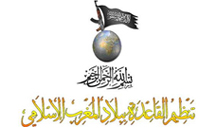
French intelligence believes that members of AQIM traveled to Libya to meet with ASL fighters in Ubari, southern Libya.Aaron Y. Zelin, “Libya's Jihadists Beyond Benghazi,” Washington Institute for Near East Policy, August 12, 2013, http://www.washingtoninstitute.org/policy-analysis/view/libyas-jihadists-beyond-benghazi. The United Nations, in their designation of ASL as an entity associated with al-Qaeda, stated that ASL was also associated with AQIM and worked to train fighters traveling to Mali.Thomas Joscelyn, “UN Recognizes Ties between Ansar Al Sharia in Libya, Al Qaeda,” Long War Journal, November 19, 2014, http://www.longwarjournal.org/archives/2014/11/un_designates_ansar.php. AQIM frequently re-tweeted content posted on official ASL Twitter accounts and published a eulogy for a slain ASL commander on October 29, 2015.Thomas Joscelyn, “Al Qaeda in the Islamic Maghreb honors Ansar al Sharia’s slain military commander,” Long War Journal, October 29, 2015, https://www.longwarjournal.org/archives/2015/10/al-qaeda-in-the-islamic-maghreb-honors-ansar-al-sharias-slain-military-commander.php; Thomas Joscelyn, “Ansar Al Sharia Libya Relaunches Social Media Sites,” Long War Journal, April 9, 2015, http://www.longwarjournal.org/archives/2015/04/ansar-al-sharia-libya-relaunches-social-media-sites.php. In the September 2015 issue of ISIS’s Dabiq, ISIS in Libya’s emir complained about the “closeness” of ASL leaders to AQIM.Thomas Joscelyn, “In Dabiq magazine, Islamic State complains about jihadist rivals in Libya,” Long War Journal, September 13, 2015, https://www.longwarjournal.org/archives/2015/09/in-dabiq-magazine-islamic-state-complains-about-jihadist-rivals-in-libya.php.
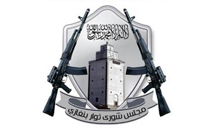
Also known as the Shura Council of Benghazi Revolutionaries, the Shura Council is made up of several brigades of anti-Gaddafi rebels, including ASL and Libya Shield.Reuters, “At least 19 dead in Benghazi in the latest clashes between Libyan soldiers and Islamist fighters,” Business Insider, June 11, 2015, http://www.businessinsider.com/r-latest-clashes-between-libyan-soldiers-islamists-in-benghazi-kill-19-medics-2015-7; “Guards die in attack on S Korea embassy in Libya,” Al Jazeera, April 12, 2015, http://www.aljazeera.com/news/2015/04/guards-die-attack-korean-embassy-libya-150412090449233.html.

The United Nations, in its designation of ASL, noted that ASL has a support network among Ansar al-Sharia in Tunisia (AST).Agence France-Presse, “UN Security Council Adds Libya's Ansar Al-Sharia to Terror List,” I24 News, November 20, 2014, http://www.i24news.tv/en/news/international/africa/51583-141120-un-security-council-adds-libya-s-ansar-al-sharia-to-terror-list. Tunisian security officials have stated that logistical, financial, and operational ties existed between the two groups, and that ASL sold weapons to AST.Faisal Irshaid, “Profile: Libya’s Ansar Al-Sharia,” BBC News, June 13, 2014, http://www.bbc.com/news/world-africa-27732589. Videos of Tunisians captured and interrogated by civilians in Libya suggest that members of AST traveled into Libya to train with ASL. An anonymous founding member of AST commented in a 2013 interview that the relations between Ansar al-Sharia in Egypt, AST, and ASL were like a “spider web.” Members of the three organizations met and traveled together in the Gaza Strip and in northern Sinai in 2012, meeting with Palestinian Salafists about administration, organization, and management.Aaron Y. Zelin, “Tunisia: Uncovering Ansar Al-Sharia,” Think Africa Press, October 25, 2013, http://thinkafricapress.com/tunisia/uncovering-ansar-al-sharia.
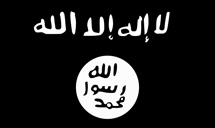
After AQIM rejected ISIS in favor of a continued allegiance to al-Qaeda, ISIS looked to ASL as a possible partner in North Africa. In July 2014, jihadist militants associated with ISIS began posting statements on social media sites and jihadist forums hoping to push ASL to pledge allegiance to ISIS.Mawassi Lahcen, “Libya: ISIS Woos Ansar Al-Sharia in Libya,” AllAfrica, July 31, 2014, http://allafrica.com/stories/201408010598.html. That summer Abu Sufyan Bin Qumu became the first of ASL’s leadership to defect to ISIS.Aya Elbrqawi, “Libya: Derna Cries for Help,” AllAfrica, December 1, 2014, http://allafrica.com/stories/201412020345.html. In March 2015, ASL’s senior sharia official, Abu Abdullah al-Libi, pledged allegiance to ISIS on Twitter, posting a photo of a book entitled The Legal Validity of Pledging Allegiance to the Islamic State. His pledge was accepted by the head of ISIS, Abu Bakr al-Baghdadi, and the jurist subsequently broke from ASL, taking a group of fighters with him.Thomas Joscelyn, “Ansar Al Sharia Libya Relaunches Social Media Sites,” Long War Journal, April 9, 2015, http://www.longwarjournal.org/archives/2015/04/ansar-al-sharia-libya-relaunches-social-media-sites.php. Lydia Sizer at the Middle East Institute noted that the number of ALS members defecting to ISIS appeared to increase after the group’s former leader Mohamed al-Zahawi died.Lydia Sizer, “Libya’s Terrorism Challenge: Assessing the Salafi-Jihadi Threat,” Middle East Institute, https://www.mei.edu/sites/default/files/publications/PP1_Sizer_LibyaCT_web_0.pdf.
Get the latest news on extremism and counter-extremism delivered to your inbox.